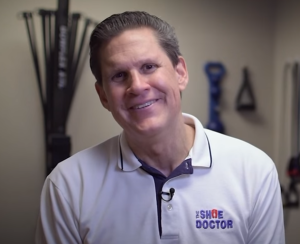If you’re pregnant, you might be experiencing plantar fasciitis. If so, don’t worry! Read on to learn more about how to deal with this foot condition during pregnancy and what can help relieve the pain.
This is a common complaint about many pregnant women because hormones loosen ligaments in your body which cause your feet to swell too much causing inflammation of the plantar fascia, the band of tissue that connects your heel bone to the toes.
This swelling causes increased pressure on this area which leads to pain when walking or standing. It’s important not only during pregnancy but also after childbirth since it’s very common for women who are new mothers as well. There are some things that may help with relieving the discomfort such as:
- Icing the painful area
- Wearing supportive shoes that have good arch support
- Using a plantar fascia night splint which can be found at your local pharmacy.
Make sure to ask your doctor about any medications you’re taking as some medications may not mix well with pregnancy such as ibuprofen so speak to them first before self-treating this foot condition during pregnancy.
Another common complaint of pregnant women has swollen ankles because there’s more blood flow going toward the uterus leaving less for other parts of our body including feet which results in swelling along with leg cramps and pains from standing too long without resting those legs!
Wearing compression socks can help relieve these symptoms since they increase circulation back into your lower extremities which help move fluid back into your feet, this way you’ll be able to:
- Get relief from swollen ankles
- Alleviate pain and cramps
- Get back your mobility
Walking is a great thing to do for pregnant women, but it’s important not to overdo it especially if you’re experiencing plantar fasciitis during pregnancy because that will only make the pain worse and could cause further injury along with more swelling which exacerbates this foot condition even more!
If walking barefoot around the house is comfortable then doing so might be a good way of getting some exercise without putting excessive pressure on those painful muscles in your feet. Make sure to wear supportive shoes as well since wearing flip flops or regular sneakers isn’t recommended when suffering from swollen ankles due to all of the added weight.
Keep in mind the following to prevent further damage or injury if you happen to have plantar fasciitis:
- Supportive shoes can prevent injury, discomfort, and pain
- Soft soles of your feet will also benefit from the cushioning properties of strong supportive footwear
- Flip flops are not recommended for pregnant women experiencing plantar fasciitis in their third trimester since they don’t provide any support in side-view
- Shoes with a narrow toe box may make it more difficult to walk around
Remember to put your feet up. During pregnancy, your feet may enlarge due to fluid retention, elevated salt levels, and water retention. Elevating your feet is one approach to deal with this. They can be tucked beneath a few cushions or propped up on an ottoman or chair. You’re allowing blood and excess fluid to flow away from your legs and feet by doing so. It’s also a good idea to remove your socks so that nothing gets in the way of your circulation.
Benefits of putting your feet up are:
- Stop swollen feet
- Treat varicose veins
- Relieve pain in your toes
- Prevent cramps by elevating feet
Plantar fasciitis is a common foot condition that can be especially frustrating during pregnancy. We hope these tips for dealing with plantar fasciitis while pregnant and ways to prevent it from happening have helped you! Call us today if you need help getting through your day pain-free or want more information on how we can help get rid of this problem.
Remember, The 3 Arches of Your Feet Still Need Support!
Maybe you have already felt the first symptoms of balance disorders or you want to prevent them from appearing in the first place. Consider getting a foot orthotic device or simply take care of your feet. Start by washing them thoroughly with a gentle soap whenever you take a shower. Being a very complex support system, your feet are your first line of defense against balance-related issues, since their arches provide you with the stability you need in your daily life. It’s time to put your foot down and push back against balance issues. With both feet on the ground, dedicate yourself to keeping them comfortable and healthy. Give us a call and we will scan your feet to make you custom orthotic inserts.
The Shoe Doctor has specialized in providing custom orthotics for 20 years. The right orthotic insoles can greatly reduce foot, knee, and hip pain while increasing performance and comfort. Russell at The Shoe Doctor will help educate and assist you in finding the perfect solution for your particular situation. We will create a 3D map of your feet and make custom orthotics for your hiking boots, everyday shoes, and everything else in between. These orthotics, along with our expert advice, will get you using orthotics like a pro, and have you performing at the peak of your abilities in no time! If you are in the San Francisco Bay Area, give The Shoe Doctor a call to get the best custom orthotics in the area! We are here to assist you, schedule your free consultation here!


